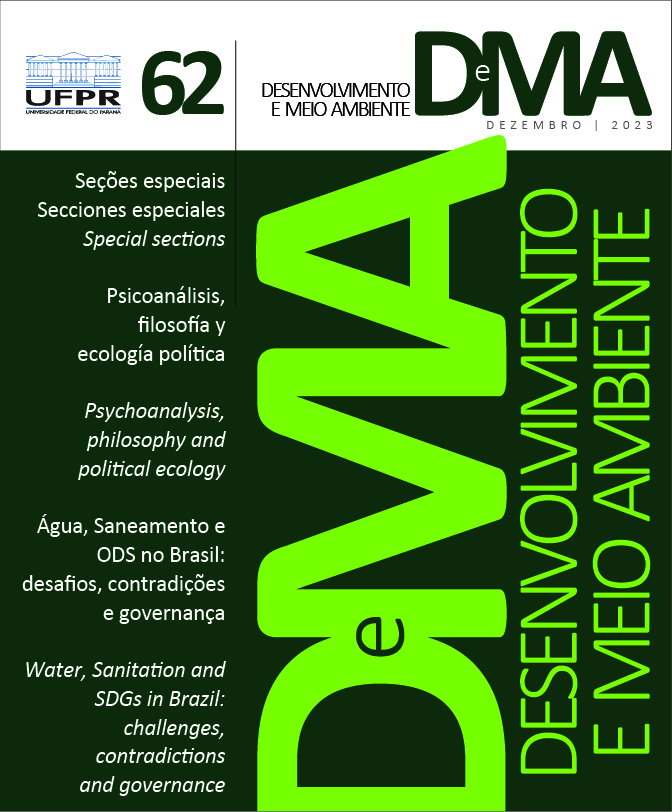Social capital, biocultural heritage and commoning for ethical and inclusive sustainability of peasant agriculture: three case studies in Argentina, Bolivia and Chile
DOI:
https://doi.org/10.5380/dma.v62i0.90418Palavras-chave:
biocultural heritage, collective action, commons, ethical values, inclusive agriculture, participatory-action research, peasant farmers, quinoaResumo
Social issues and theoretical background: the sustainability of human societies depends on the intergenerational transmission of capital stocks, whether natural, social or economic. With ever more competition for economic resources, sustainability must increasingly focus on the mutual reinforcement of social and natural capital. This perspective is particularly relevant for peasant agriculture and producers, who are constantly at risk of social and economic exclusion, but whose social and natural capital remains important, though often underutilized, even by the peasants themselves. The concepts of commoning and social capital are useful for addressing these issues and activating biocultural heritage from an ethically inclusive sustainability perspective. Objective and methods: We seek to understand how peasants organize to collectively achieve goals of social and economic inclusion that could promote their sustainability and resilience in the face of economic constraints. Using field surveys and participatory action research, we analyzed the social, economic, and environmental factors that fostered the emergence and sustainability of producer organizations and their value chains. This was done in three peasant organizations in Argentina, Bolivia and Chile, whose common starting point is the valorization of traditional quinoa grain, but which differ greatly in terms of size, internal dynamics and organizational trajectories. Results: The successes and challenges of the social innovations implemented in the three cases studied provide lessons on how farmers can mobilize their social capital and leverage the resources of their cultural and natural capital to achieve ethically inclusive sustainability. While some lessons remain context-specific, others appear to be independent of the size and place of organizations, and several demonstrate the importance of socio-ethical interactions cultivated both within organizations and with consumers.
Downloads
Publicado
Como Citar
Edição
Seção
Licença
Os Direitos Autorais sobre trabalhos publicados nesta revista são do autor, com direitos de primeira publicação para a revista. O conteúdo dos trabalhos publicados é de inteira responsabilidade dos autores. A DMA é um periódico de acesso aberto (open access), e adota a licença Creative Commons Atribuição 4.0 Não Adaptada (CC-BY), desde janeiro de 2023. Portanto, ao serem publicados por esta Revista, os artigos são de livre uso para compartilhar (copiar e redistribuir o material em qualquer suporte ou formato para qualquer fim, mesmo que comercial) e adaptar (remixar, transformar, e criar a partir do material para qualquer fim, mesmo que comercial). É preciso dar o crédito apropriado, prover um link para a licença e indicar se mudanças foram feitas.
Os conteúdos publicados pela DMA do v. 53 de 2020 ao v. 60 de 2022 são protegidos pela licença Creative Commons Atribuição – Não Comercial – Sem Derivações 4.0 Internacional.
A DMA é uma revista de acesso aberto desde a sua criação, entretanto, do v.1 de 2000 ao v. 52 de 2019, o periódico não adotava uma licença Creative Commons e, portanto, o tipo de licença não é indicado na página inicial dos artigos.









.png)





